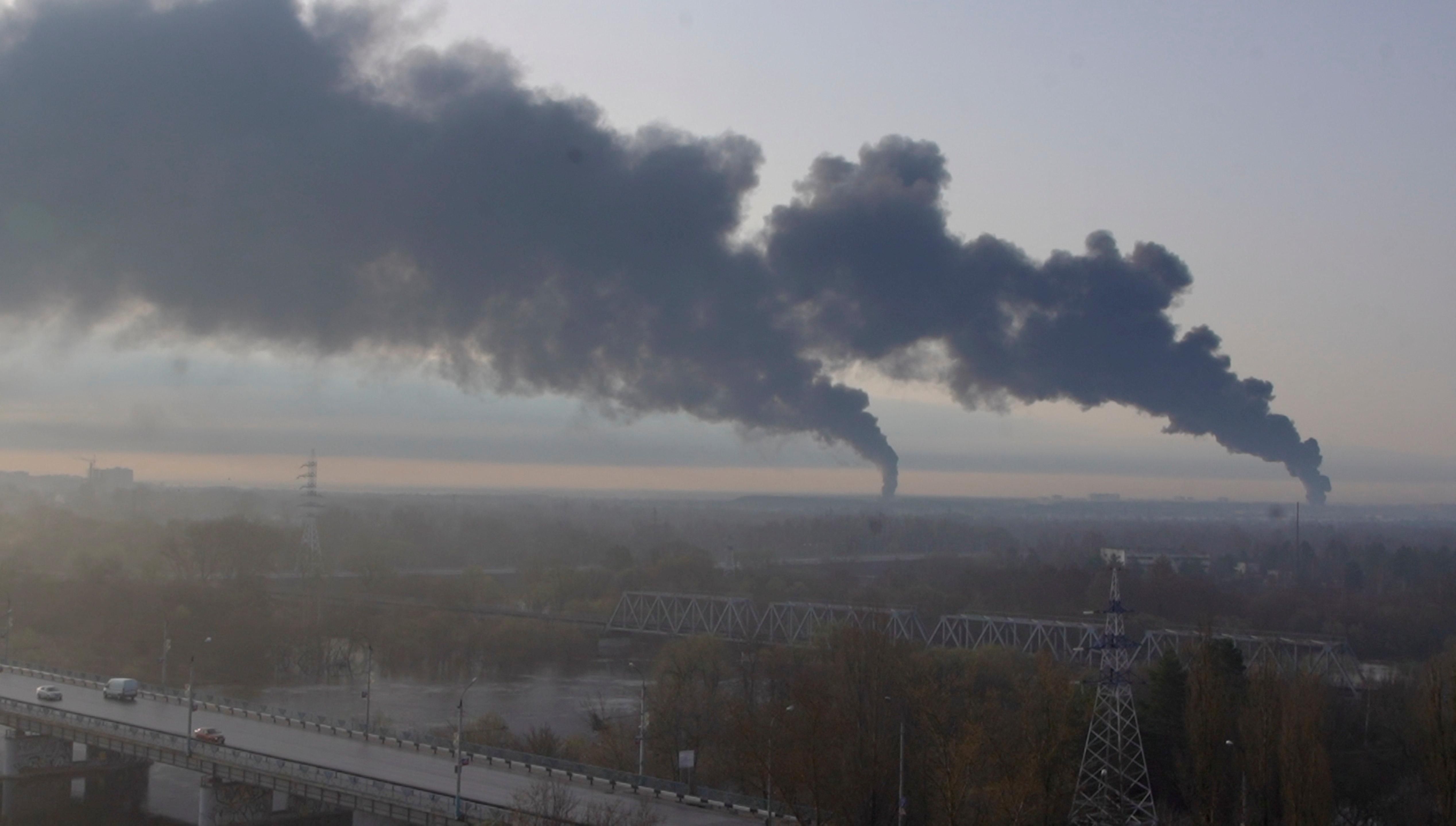Flaming coincidences in Russia
Fires, explosions, train derailments, dead executives — there’s a lot of weird stuff happening in Russia lately. Earlier this week, two major oil depots went up in flames in the city of Bryansk, a major support hub for Russian forces just a few hours north of the Ukrainian border by car. Russia says it’s investigating, but top military analysts say the blaze looks like the result of sabotage or an attack by Ukraine. Just three days earlier, a locomotive derailed while traveling along a nearby stretch of rail used to supply the Russian army. That, meanwhile, happened on the same day that fires erupted at a major defense research institute and a chemical plant, both within 100 miles of Moscow. The research institute blaze, which was blamed on faulty wiring, claimed half a dozen lives. Fires in Russia’s poorly maintained Soviet-era buildings aren’t uncommon, but the chattering has begun: were these Ukrainian operations? Sabotage by disgruntled employees? False flag “attacks” staged to rally opinion against Ukraine? We’re watching to see if the trend continues. Meanwhile, another oddity: Russian executives turning up dead in apparent murder-suicides with their families. That fate recently befell former executives from energy giant Gazprombank and Novatek, Russia’s largest independent gas producer. Their deaths are among a number of high-profile oligarch deaths in recent weeks.
Russian rhetoric goes nuclear
Vladimir Putin met on Tuesday with UN Secretary General António Guterres at his famously long table in the Kremlin. Guterres was perhaps hoping that giving Putin an air of legitimacy as an international statesman might improve his chances of pulling some concessions from Moscow. Instead, the Kremlin doubled down on its escalatory rhetoric, saying that prospects for peace talks with Kyiv were “dismal.” Meanwhile, as fears rose that the conflict could spread beyond Ukraine's borders, the Kremlin announced Wednesday that it would cut off natural gas exports to Bulgaria and Poland. Greece, for its part, vowed to help Sofia make up the shortfall, while Warsaw has been bulking up its stockpiles in anticipation of a Russian suspension. This comes after Russian Foreign Minister Sergey Lavrov created a frenzy by saying that as the crisis deepens – and the West continues to provide Ukraine with heavy artillery – the risk of a nuclear conflict is “quite considerable.” Would use of a nuclear missile in Ukraine be a clear “red line” for the White House and its European partners, prompting a fierce military response? While Biden has talked tough in recent weeks, he hasn’t laid out what the US would do if Putin went nuclear. In 2013, President Barack Obama vowed to intervene in Syria if the Assad regime – backed by Putin – crossed a “red line” by using chemical weapons, and we all know how that turned out.
Kim Jong-un parades nuclear intentions
At a military parade this week, North Korea’s despot Kim Jong-un pledged again to boost his country’s nuclear arsenal. Speaking from a balcony clad in a regal white suit with gold trappings, the supreme leader said nuclear weapons primarily serve as a deterrent but warned they would be deployed if Pyongyang’s strategic interests were “threatened.” Since inheriting the reins of the Hermit Kingdom a decade ago, Kim has been a fan of over-the-top military parades, using them to flex his military might and threaten the West. This latest display comes weeks after North Korea tested intercontinental ballistic missiles for the first time in five years, an attempt to gain Washington’s attention, which has largely ignored Pyongyang since President Biden took office. With the world focused almost exclusively on Ukraine, Kim’s tirade was likely another attempt to lob his own warning shots, both for attention and to look tough for people tuning in at home.
More For You
Indian Prime Minister Narendra Modi and Canadian Prime Minister Mark Carney struck a series of deals during a meeting in New Delhi on Monday, including a 10-year nuclear energy deal under which Canada will provide India with uranium.
Most Popular
The US and Israel have launched a series of strikes against Iran at a moment when the Islamic Regime is at its weakest. Ian Bremmer spoke with Iran expert Karim Sadjadpour in Munich earlier this month to understand the choices the regime and population are facing.
With US forces building up in the Middle East, Trump is betting military pressure will force Iran to bend. Will this turn into a full-scale conflict?
Are we still talking. #PUPPETREGIME
